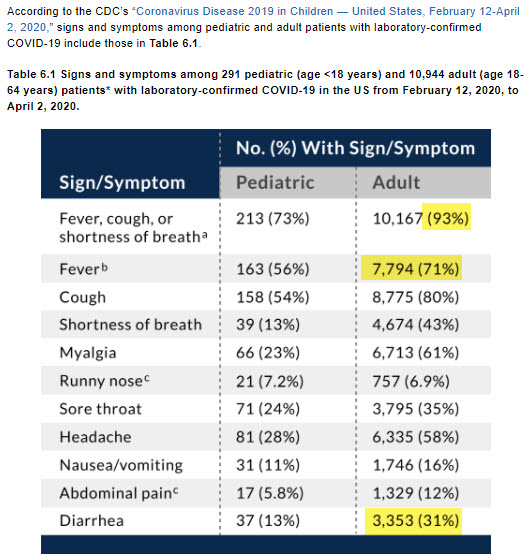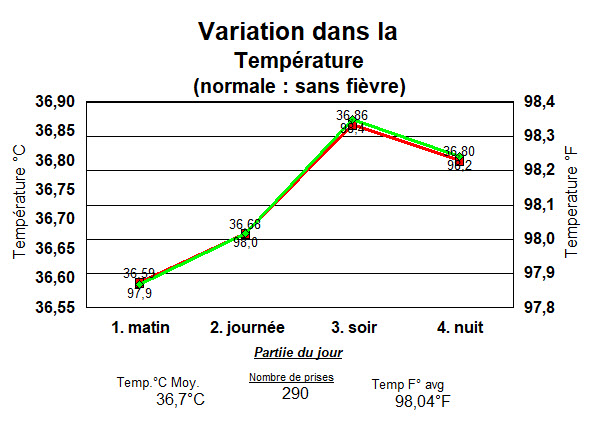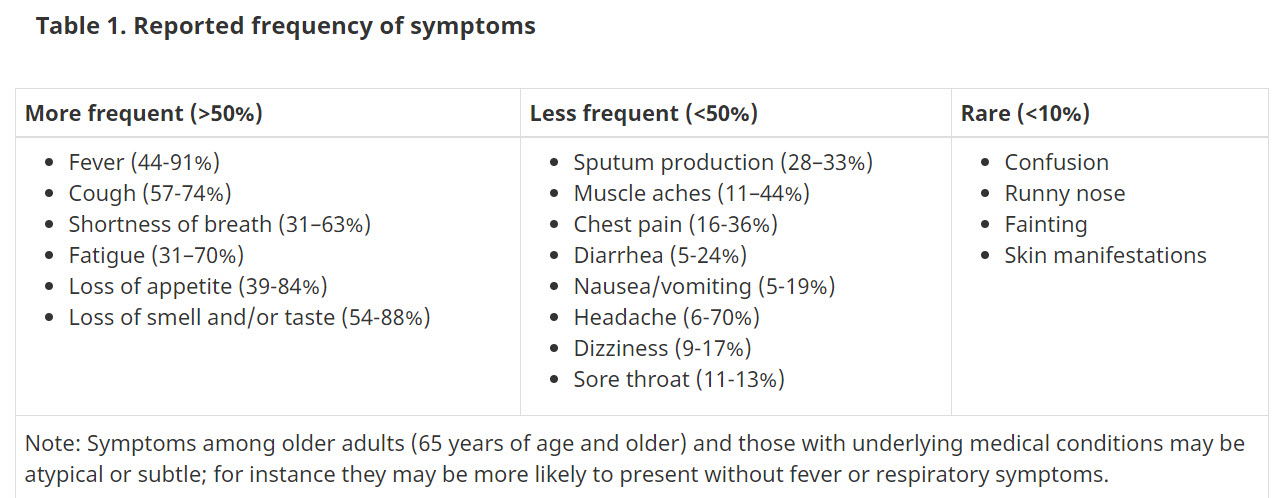Normal Temperature - who says?
- Take temp morning and evening but not more, unless really starting to feel feverish.
- Know that in the evening if you notice your temp has gone up, that may be quite normal.
- Recall that most people presenting with this illness do not have a fever. Using it as a guide to having this illness or not can therefore be flawed.
- The above graphic reminds that "normal" may not be "98.6°F" like we all learned.
Here is one list of symptom frequency when people get COVID-19:

Now "fever" has jumped up from 41% to 71%. And if one has fever, plus cough or shortness of breath, that's how 93% presented in the US says CDC. All of the above, tested positive.
Here is a list from Canada. But it also combines results reported from several countries:
Notice the wide spread for each symptom. Fever for example, from 44 to 91%.
Diarrhea 5 to 24%.
And the point is?
Lots of variability in the presenting symptoms.
Can you have NO symptoms and a postive test? Yes. You are either asymptomatic (no symptoms ever, but a carrier of the virus) or pre-symptomatic (and will get symptoms in a few days).
If you have no symptoms and a negative test: feel reassured.
If you have some of the above symptoms, common in several other illnesses besides COVID-19, and your test is negative, either you don't have it, or you do and as in 37% of tests, it's a false negative.
Not an instantly clear situation.


